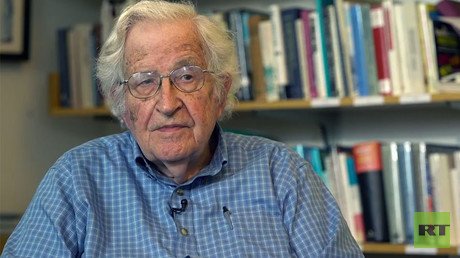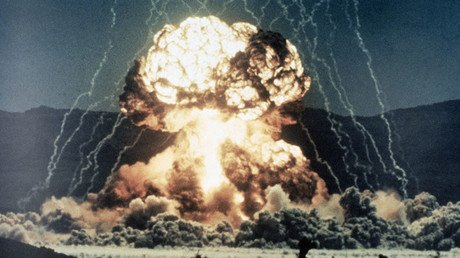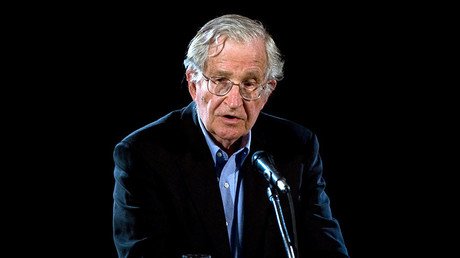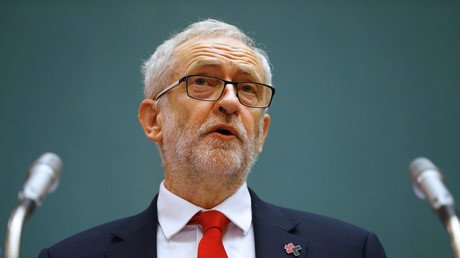Trump’s America: Weaker, divided & losing international prestige – Chomsky to RT
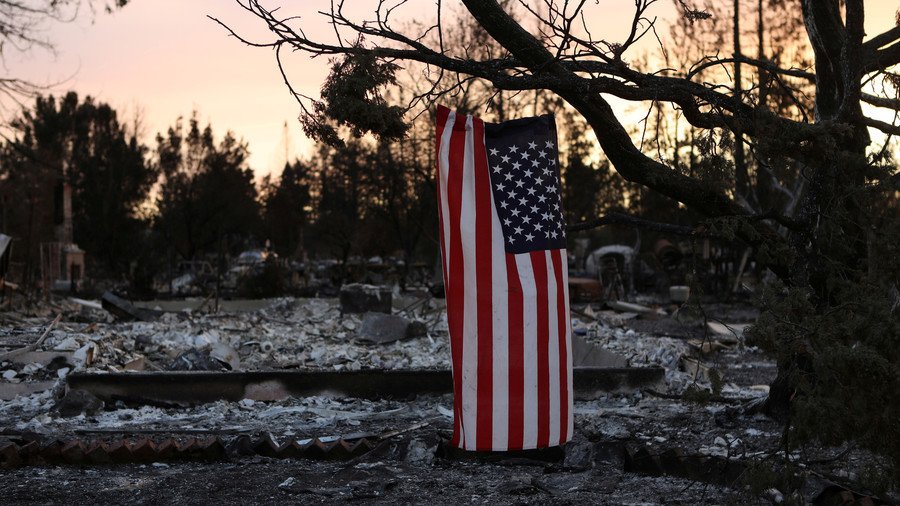
While its military and economic clout still knows no competition, the world is no longer America's playground; and with Trump’s isolationist and aggressive stance, the US surrenders positions internationally, Noam Chomsky told RT.
In an interview with RT Spanish's “Conversation with Correa” host and Ecuador’s former President Rafael Correa, renowned American philosopher and political scientist Noam Chomsky argued that US President Donald Trump’s claims that he is making America greater, stronger and more powerful have absolutely no merit.
“Under Trump, it’s becoming weaker, less effective, it’s internally disintegrating, it’s losing whatever international authority or prestige it had and it’s also moving to destroy the world,” Chomsky said.
Trump’s decision to pull out of the milestone Paris climate accord, which is aimed at fighting climate change, endangers the future life on the planet, Chomsky said, arguing that the US withdrawal from the pledge to reduce its carbon footprint is “the most important policy of the Trump administration by far.”
“Here, the United States under Trump has departed from the entire world. Every other country has at least some kind of commitment to addressing this growing and, in effect, imminent crisis. The US alone, under Trump, is aggressively moving to increase the danger, to escalate by the greater concentration on fossil fuels extraction.”
Chomsky called the potential effects of this policy “devastating,” noting that the US is on course to overtake Saudi Arabia as the world’s leading fossil fuels producer.
America's clout on the world stage stems from the age of WWII, from which it emerged economically unaffected and armed with nuclear weapons, Chomsky said. And although its power has been on a steady decline since 1945, and other powers like China have emerged to challenge it, the US – or rather its corporations – still remains an economic powerhouse.
“US power in the international system as a national entity has declined, but, meanwhile, the world has changed under neoliberal globalization and if you look at the ownership of the world, international multinational corporations based in the US have about 50 percent ownership of the world’s economy.”
The US militaristic might is likewise enormous, according to Chomsky. “In military terms, no one else is even close to the US, the US spends almost as much as the rest of the world combined, it’s technologically vastly more advanced.”
Washington does not shy away from an occasional show of force, most recently flexing its military muscle at the North Korean borders. Noting that Trump’s war rhetoric towards North Korea “could materialize very easily,” Chomsky argued that the only feasible approach to breaking the standoff is the “double freeze” plan proposed by China and backed by Russia. The plan, which envisages the halt of the US and its allies' wargames in the region in exchange for the suspension of North Korea’s nuclear and missile program, was rejected by Washington.
Chomsky believes that North Korea, which sees “constant highly-threatening military maneuvers” by America's most advanced nuclear-capable bombers as a “severe threat,” would agree to a plan that would allow it to pursue its economic objectives. According to Chomsky, the inflated military budget that stalls its economic development is a necessity for North Korea, as it has every legitimate reason to be afraid of a potential aggression from Washington.
“The UN Charter bans the threat or use of force. Threat or use of force – this is a strict violation of the Charter, it’s a crime. This is happening all the time if you look at the history of the United States and North Korea – it’s a very meaningful threat,” Chomsky said. "It's practically flattened the country back in the 1950s."
